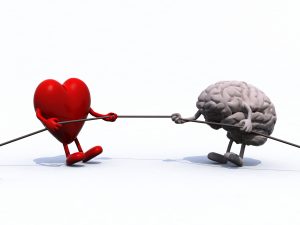Stress kills. This not a clique or a baseless statement, but a real statement based on fact and science. Stress causes disease and death in many people every year. Stress can be real, physical, environmental and immediate, or social and psychological.
Psychologist Walter Cannon first studied the stress response of human beings. He termed the popular phrase, flight or fight. The flight or fight response is humanity’s most evolutionary basic response to stressors. When something immediate and threatening approaches, our ancestors fled or stayed and fought. In that process, the stressors were analyzed in the brain and the necessary adjustments were made to the various bodily systems to prepare the body for stress. These systems included the endocrine, cardiovascular, automatic nervous and muscular systems of the body to respond to the stressor or threat. Through these complex systems, various reactions in the body take place that prepare the body for fight or flight

Among these many reactions originating from the brain and then transferring to the various glands that emit hormones include faster heart rate, higher blood pressure, muscle contraction, increased metabolic rate, less fatigue, more energy, and more oxygen. These changes are a result of hormones in the body. Cortisol is a primary hormone that increases blood sugar for energy. In addition, aldosterone is a hormone that increases blood pressure.
These essential changes are pivotal in flight or fight responses. However, over time, these increased hormones and the chemical changes they produce in the body are not healthy. Seyle, the Father of Stress Management, studied the effects of stress on rats and discovered that a multitude of physical ailments befell the rats when over stressed. This is the same truth for human beings. Human beings can injure their bodies through prolonged and intense stress. Heart damage and higher blood pressure, leading to stroke or heart attack are real killers due to stress response. Other ailments can develop over time, such as stomach issues, ulcers and digestive disorders.
Stress does kill. It can kill immediately or over time. It is hence important to understand stress and reduce stress. Stressors all play different roles to an individual. One may be stressful for one person may be a blessing or nothing at all to someone else. How we view stressors and react to stressors play a key role in activating our flight and fight responses. We need to limit these responses to only life altering situations so as to spare our body the changes it deals with during a stress incident.
Unlike our ancestors who could flee or fight stress, modern humanity must deal with stress internally or externally. One cannot flee a job or fight the customer but must deal with the everyday stresses. This leads to chronic stress that modern humanity is not evolved to deal with. So ultimately, it comes down to how one views life, reframes stressors and reacts.
Stress is all about the stressor and the stress response. If someone is stressed in the a traffic jam, he can scream, yell and honk the horn, or take the time to listen to music or reflect on the day. If someone is watching a sporting event, they can become intensely stressed or enjoy the game for the love of the game itself. Ultimately, how one reacts to a stressor depends on the uniqueness of the individual. Life is not about avoiding stress, for no stress is not living and not healthy in and of itself. Instead, life is about sorting out stressors and dealing with the most important ones. One needs to learn to cope with stress by reducing the degree and duration of the stressor event. In doing so, one can limit the natural effects of stress on the body and its natural reactions to stress.

Ultimately it is one’s health that is on the line. By understanding how the body internally responds to stress, one can see the bodily reactions, which in themselves are healthy in the moment but unhealthy in extreme degree and long duration. Learning to sort out un-needed stress, reframing situations and utilizing stress management concepts such as meditation, one can then reduce the physical reactions within the body to stress.
If you would like to learn more about AIHCP’s Stress Management Consulting Certification, then please review AIHCP’s Stress Management Program and see if it matches your academic and professional goals. The program is online and independent study and designed to help qualified professionals meet the standards of AIHCP for the four year certification.
In the meantime, limit stress and learn to cope better with stress for one’s own physical well being.














